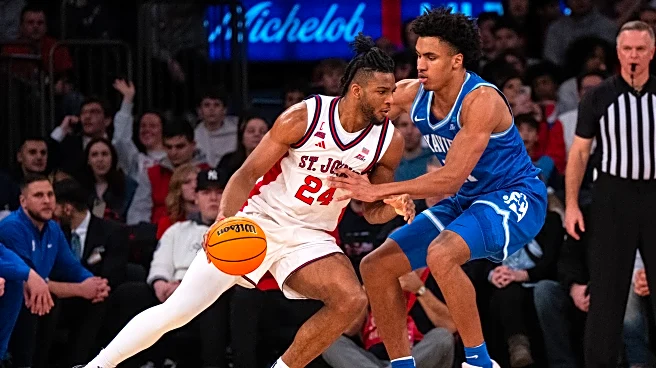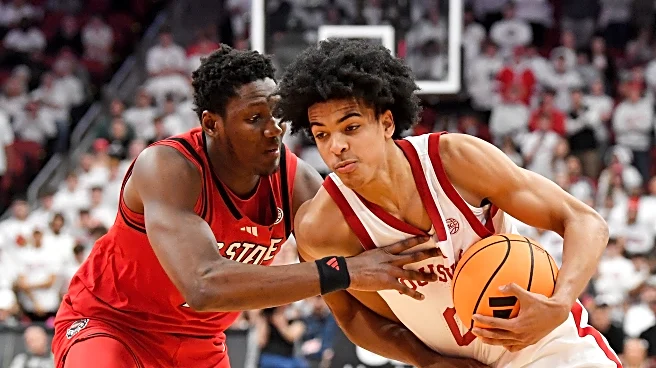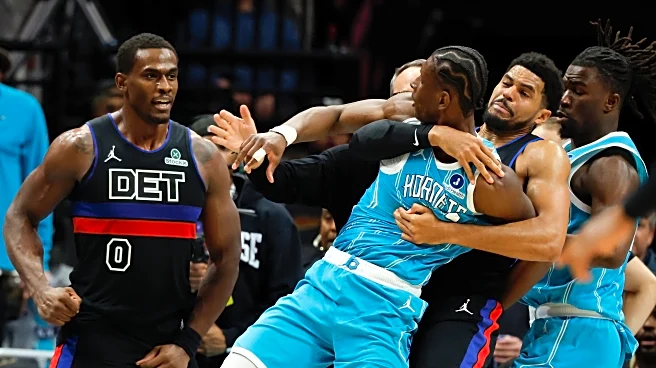What's Happening?
LaLiga has proposed to hold a regular season match between FC Barcelona and Villarreal at Miami's Hard Rock Stadium, marking the first European fixture to be played in the U.S. The Royal Spanish Football Federation has approved the plan, which now awaits authorization from UEFA and FIFA. LaLiga President Javier Tebas supports the move, citing the need to strengthen the league's presence in the North American market. Financially, both clubs stand to gain significantly, with Barcelona and Villarreal reportedly set to receive between €5 million and €6 million each. However, the proposal has faced opposition from fan groups and Real Madrid, who argue it disrupts the competitive balance and undermines the league's cultural roots.
Why It's Important?
The decision to host a LaLiga match in the U.S. could have significant implications for the globalization of European soccer. It represents a strategic move to capture the lucrative North American market, potentially increasing revenue and viewership for the league. However, it also raises concerns about the commercialization of sports and the potential alienation of local fan bases. The move could set a precedent for other leagues to follow, further blurring the lines between local and global sports markets. Stakeholders such as fans, clubs, and governing bodies are divided, highlighting the tension between tradition and commercial interests.
What's Next?
The proposal awaits final approval from UEFA and FIFA. If authorized, it could lead to more European matches being played abroad, prompting reactions from other leagues and clubs. Fan groups and clubs opposed to the move may continue to voice their concerns, potentially influencing future decisions. The outcome could also impact negotiations for broadcasting rights and sponsorship deals, as leagues seek to expand their global reach.
Beyond the Headlines
The controversy highlights broader issues in sports, such as the balance between commercial interests and cultural heritage. It raises ethical questions about the role of fans in shaping the future of sports and the responsibilities of leagues to their local communities. The decision could also influence how other sports organizations approach globalization, potentially leading to shifts in how sports are marketed and consumed worldwide.










